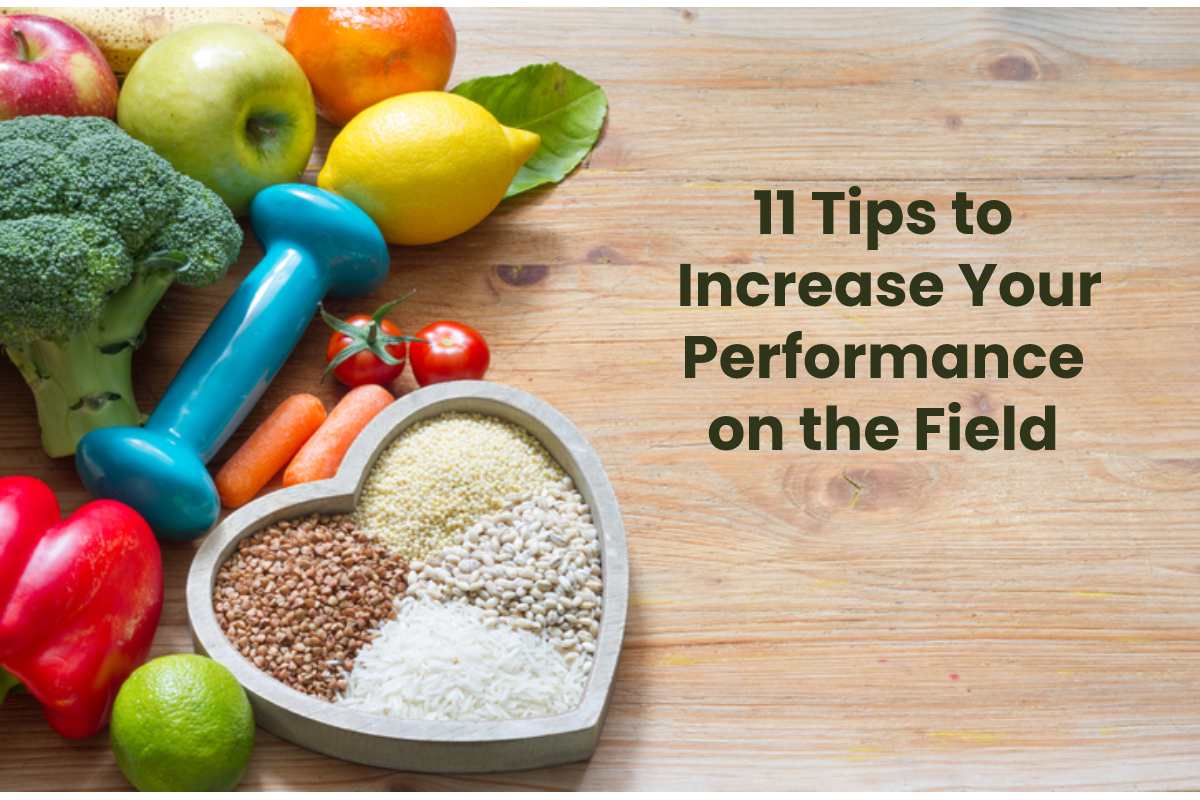
Increase Your Performance on the Field
Feeling like your performance on the field or court has been lagging recently? It’s common to hit training plateaus, especially if you have been playing your sport for a while. Here are 11 ideas to help you increase your athletic performance on the field:
Table of Contents
Hydrate better.
If you’re dehydrated, then you can’t perform well, plain and simple. Make sure that you are drinking enough every single day so that you don’t become dehydrated. Consider rotating in sports drinks or electrolyte powders, churning workouts to replenish the electrolytes that you are losing through your sweat. Make sure that you use a squirt water bottle that is easy to drink from even when you’re wearing a moldable mouthguard.
Eat a Balanced Diet.
We get most of our nutrients through our diets, so healthy eating is key to athletic performance. Your diet should prioritize lean proteins, healthy carbs, and good fats. Try to limit your consumption of foods that are high in sodium and sugar as well as processed and packaged foods. Make sure that you’re getting enough calories so that your body doesn’t burn muscle in addition to fat.

Consider Supplements.
Despite our best efforts at eating healthfully, sometimes we need to give a little boost to our vitamins and minerals in the form of (legal!) supplements. The most accurate way to determine your vitamin and mineral deficiencies is to get a blood draw to figure out your base line. Every single person is different — you could be deficient in a vitamin that your teammate has too much of — which is why each athlete needs to figure this out with their doctor.
Get on a Sleep Schedule.
If you don’t sleep enough, then your body won’t be able to recover, and that will negatively impact your performance. You should be getting at least seven hours a night, and you might need more like nine to ten hours some days (or every day). Go to bed and wake up at the same time each day, including weekends, to get your body on a schedule. Put away screens at least an hour before bed so your body can relax without all that blue light. Snac ZMA is an organic supplement which helps your body recover after intense activities like athletic training. It helps you sleep more deeply and soundly to boost your body’s natural ability to rebuild and repair muscles.
Train Frequently and Consistently.
Unfortunately, being an occasional weekend warrior isn’t conducive to performing better on the field. Instead, you need to focus on training frequently and consistently. You do need to have rest days (more on that in a minute) but you should still be training more days than you’re taking off. If you have trouble sticking to a schedule, start with two to three days a week and ramp up from there.

Plan for Recovery Time.
That being said, you don’t want to go too far to the opposite side of the spectrum and overwork yourself, which will also negatively impact performance. You should be taking at least one day completely off a week, and you may need two days if you train very hard. You should also take a week every couple of months to give your body a longer break. If you find it tough to lie around all day, then try doing easy yoga routines or other active recovery workouts.
Measure your Progress.
The best way to know that you’re improving (or not) is to measure your performance. Keep logs during your workouts and practices about your reps, times, splits and other relevant data. You should also make notes about more subjective factors, such as how you’re feeling. If you are in the process of changing up your diet or supplements, you should track those, too, so you can see whether or not they are having a positive or negative effect on your performance.
Cross-Train in other Sports.
Cross-training in other disciplines is not only great for relieving boredom, but it will also make you better at your chosen sport. Cross-training builds different skills that will translate into better performance both on and off the fields. If you’re only been playing a single sport 24/7, it’s time to grab your custom mouthguard, get out of your rut and try something new.

Train your Brain.
Mental practice is just as important as physical practice. Educate yourself about the best practices for mental imagery for sports and how they can apply to your training specifically. Set aside time to do your mental practice the same way you do for physical training. You might be surprised at what a difference it can make in your performance!
Take care of your Mental Health.
Mental practice isn’t the only way that your mind can affect the way you play. If you’re depressed or anxious about something off the field, it can negatively affect your athletic performance even without you realizing it. Make sure that you are taking care of your mental health just as you are taking care of your physical health so that you can function at peak levels.
Upgrade your Gear.
If you’re still using the same gear you had back in high school, it’s time to level up. Take stock of your gear and throw out anything that is damaged or doesn’t fit anymore, and then upgrade to quality gear that will last. You should also periodically check in on gear that wears down fast, such as shoes and moldable mouthguards; these might need to be replaced as frequently as six months if you’re training hours per day.
If you feel like you’ve hit a plateau on your training, think again: It’s always impossible to increase your performance on the field. Follow these tips to start leveling up your game again if you’ve been stuck in a rut. Got more ideas for increasing your performance in the field? Add them in the comments below!


